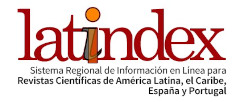SMART CITIES: AN ANALYSIS OF INFORMATION AND COMMUNICATION TECHNOLOGY CAPABILITIES FOR DIGITAL TRANSFORMATION IN BRAZILIAN CITIES
DOI:
https://doi.org/10.54399/rbgdr.v20i1.7136Palabras clave:
Smart Cities, Digital Transformation in Cities, ICT Assessment Model, ICT Planning for CitiesResumen
This paper aims to evaluate the conditions information and communication technologies (ICT) in Brazilian cities, due to the implementation of the concept of smart city and digital transformation. To achieve this goal, it was applied an assessment of readiness of ICT which provided data gathering, analysis and results demonstration capabilities thru by directly calculating the level of readiness of each technology and its specific functionalities and by the interactions and interfaces between the functionalities of different ICT applications analyzed through the Complex Network Analysis. It was applied in eleven cities in the state of São Paulo. The results showed that most analyzed dimensions are framed between levels 3 - Initial and 4 - Elementary. Pearson's correlation application shows that the HDI-M and the measured ICT assessment have a strong positive correlation (ρ = 0.89) with each other. The proposed model seeks to contribute at the theoretical and practical perspectives and to complement the existing evaluation models, focusing on verifying the readiness and application of ICT for the management of cities. Also, this work postulates a new concept for the term smart city, entering the multidisciplinary dialogue on the subject.
Descargas
Publicado
Cómo citar
Número
Sección
Licencia
Derechos de autor 2024 RBGDR

Esta obra está bajo una licencia internacional Creative Commons Atribución-NoComercial 4.0.
Os autores que tiverem seus trabalhos aceitos e publicados na Revista Brasileira de Gestão e Desenvolvimento Regional estarão sujeitos a política de direitos autorais CC https://creativecommons.org/licenses/by/4.0/.
Em caso de aceite do artigo para publicação, os direitos autorais são automaticamente cedidos para a Revista Brasileira de Gestão e Desenvolvimento Regional.
















